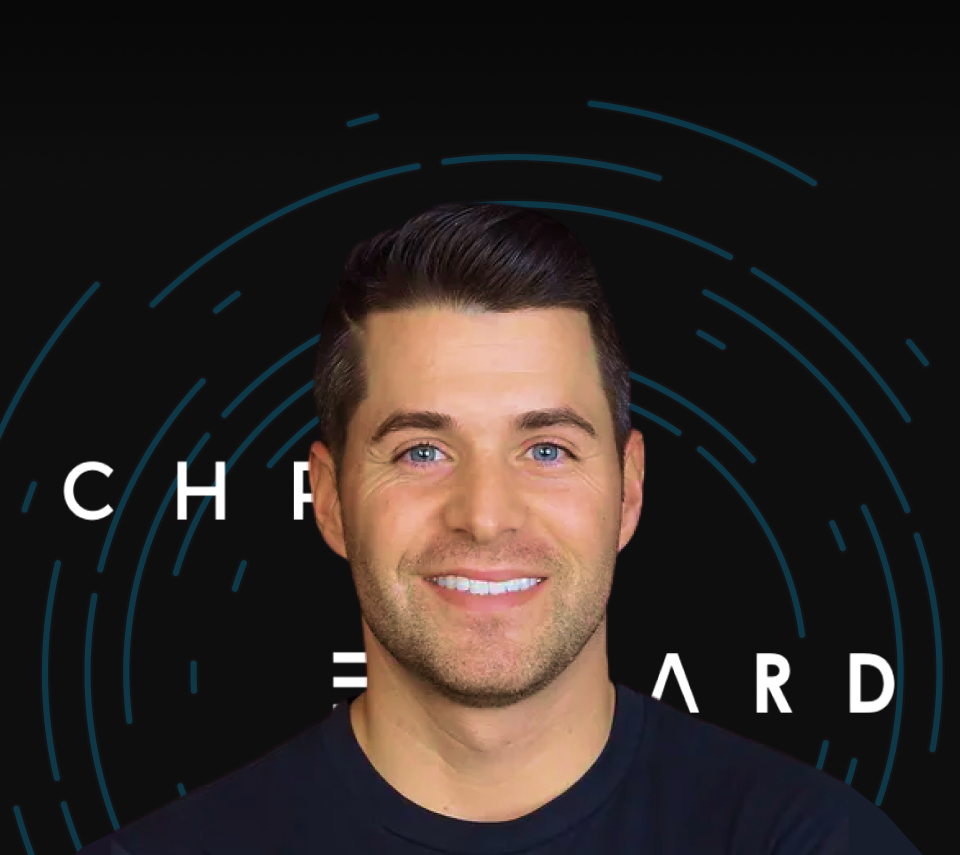| 00:00 | As we're heading into the New Year, I'm definitely seeing a lot more CROs and VPs of sales joining companies. And one thing I've noticed over the years when it comes when connecting with leaders with them after, like, their 30, 60, 90 day value strategy planning is I I've seen sales methodologies change over the years, 10, 15 years ago.
Right? You had medic, med pick. You have one gap selling.
But the one thing I haven't seen really changed is that 30, 60, 90 day kind of eval that sales leaders use. And I've always been curious, you know, with you having 30 plus years of sales leadership experience, how do you feel about the 30, 60, 90 day plan as a sales leader who's joining an organization? |
| 00:51 | 30, 60, 90 plans, I think, are good for building funnels, and understanding the revenue. So as a sales leader, I think it's different for a salesperson and than for a sales leader.
For a sales leader, I don't think about things in a 30, 60, 90 way coming into a new company. And I've done I've gone into new company multiple times.
When you walk into a new, sales environment, what I like to do is say, okay. What does my talent look like?
Who are my largest customers and what do they think of us? And from a sales organization that utilizes partners to accelerate the business, who are my best partners, and what do they think about us?
What is the sales compensation plan, and what does it push the people to try to achieve? Is it driving the right behavior?
So I'm looking at my people and my talent. I'm looking at my customers and what they think.
I'm looking at the partners and I'm looking at the comp plan. So I'm think, you know, I'm a sales leader.
I'm a CRO. Those are the most important things that I need to understand when I first walk into a business. And then number 2, my talent looks good.
And the way that you evaluate the talent is you actually talk to the sellers. So you you know you look at what they're doing and what they're achieving.
You talk to the top sellers in the organization so you can get a good feel for what's going on in the organizations. So I don't necessarily, as a new sales leader, box things into a 30, 60, 90.
I think really good sales leaders don't necessarily need the structure of a 30, 60, 90. What they need to do is know what the top things are and just aggressively pursue. |
| 02:51 | Where do you see in this process sales leaders getting snagged?
|
| 02:58 | Well, I think that a lot of sales either come into an organization and realize that the organization has processes that just don't work. |
| 03:07 | Okay. |
| 03:08 | Okay? And and they can they're easy to see. They're low hanging fruit.
And so they start focusing on, I'm gonna fix all these processes. Well, I I think that's a big mistake.
And before you try to fix up fix sales processes or processes that look wrong in an organization is shouldn't you know about the people, the customers, and the partners first? I think you should.
Because if you're gonna be able to effectively fix whatever is broke, those are the people that are gonna tell you the things that are broke first. |
| 03:42 | Now when you talk about the putting your plan together, what are some of the unforeseen obstacles that would come up that were kind of out of your control?
What were some things that came up in that process? |
| 03:56 | Oh, well, some of the things that come that can come up that that really require your attention, so you better get it, but they're not fun to have to deal with.
You come into a sales organization and 2 or 3 of the top sellers are about to quit. |
| 04:14 | Oh, wow.
Okay. |
| 04:57 | Let's go back to the the unforeseen.
You walk in. You got a couple sellers that are your best sellers. Right?
And you get win that they hey. We're probably gonna lose them. |
| 05:09 | Yeah.
|
| 05:10 | What it like, give me the play by play of what like, what are you doing and what's the message you're you're telling them? Like, I'm very curious there to to try to keep them and yeah.
|
| 05:20 | Yeah. I mean, here's what I think is important. Everybody knows when those top sellers are about to leak.
All the other sellers know about it. Right?
And they know and they because, you know, word passes it. But it's a great thing if the sellers see that you really care.
You're coming to the organization new. You're picking the phone up.
You're flying out to see those sellers, or you're picking the phone up, you're jumping on the video call with those sellers, and you're finding out why they're late. And, you know, you may find out that it's too late, and you may find out that, you know, it's a quick fix and you can fix it.
But what the organization now knows is that you value top performers. Right?
And that you're gonna fight to keep them in the organization, which means you're gonna listen to what the Salesforce has to say. So those are the things that you do, but you make sure everybody knows you're gonna do it.
Yeah. Wow.
|
| 06:19 | So so to kind of wrap this up, Larry, you know, the line items that are really most important for you when you're entering an organization and to kinda recap as well, you don't look at the when you join an organization, you're not looking at it at it as a 30, 60, 90. That's that's that's not how you view it, and you're looking at certain things.
|
| 06:42 | No. No. The only thing that's 30, 60, 90 with me is the funnel. Everything else is, if I do these, what are my set of priorities?
Then I'll build upon the next step. Set.
Imagine this, that I've done the the the people, the partners, the customers at Cochrane, and I found out all this good information. So now the people might have said the the talent might have said the product is it's flawed.
It's flawed in the team. So now, you know, the next level is I gotta talk to the product leader, have a discussion with them. The customers might say, your your product's fine, but your implementation sucks.
|
| 06:34 | Once again , just like I would say , I don't wanna ever change a comp plan midstream. I don't wanna ever cap a seller , but I want it in the comp plan that I could , if I had to.
So I don't ever want to use it , but it needs to be a line item in the comp plan. There are unforeseen circumstances , Things that happen in a sales environment.
Let's talk about the first thing that could happen. The business , the business could be failed.
So if the business is failing , it's not the seller's fault , but everybody's suffering. And so the seller is a part of this greater team.
And so you need to have the ability to protect the business. Now , I don't want to ever have to cap this up.
I cannot recall once. I guess I was a seller for , I guess , 8 years in technology and I've been a sales leader for like 30 plus years.
And I don't remember ever had cat as against the comp. |
| 07:23 | Now you gotta talk to the implementation.
|
| 07:25 | So now so now I know I know the the route to go from these from the initial priorities.
I'm you know? Yes. Can you bucket it? If that makes if you need that kind of structure, that's fine.
But I think most sales leaders don't if you don't get wrapped up in that structural part, you'll do the things that have to be done, and then that'll point you in the direction of everything else. |
| 07:52 | So it sounds like leaders need to listen more to what the organization is doing versus coming in and just kind of just making diagnosis without really doing the the research.
|
| 08:03 | You can't win if if you're not listening to what the organization is telling you. Leadership isn't that you came in with a plan and you knew what was right.
Leadership is you came you came in, you listened, and then formed a plan for. And by the way, you might find out that everything's just going fine, so just leave it alone.
Yeah. Try to and try to drive with that. Don't screw it up.
If the organization is running smoothly, why screw it up? Right?
So you may find that out. |
| 08:31 | Yeah.
No. This is great. This is fantastic. So I appreciate you talking about this with your experience that you've had.
And, yeah. Till next time.
|
| 08:39 | Great.
Good job. Thanks. |

